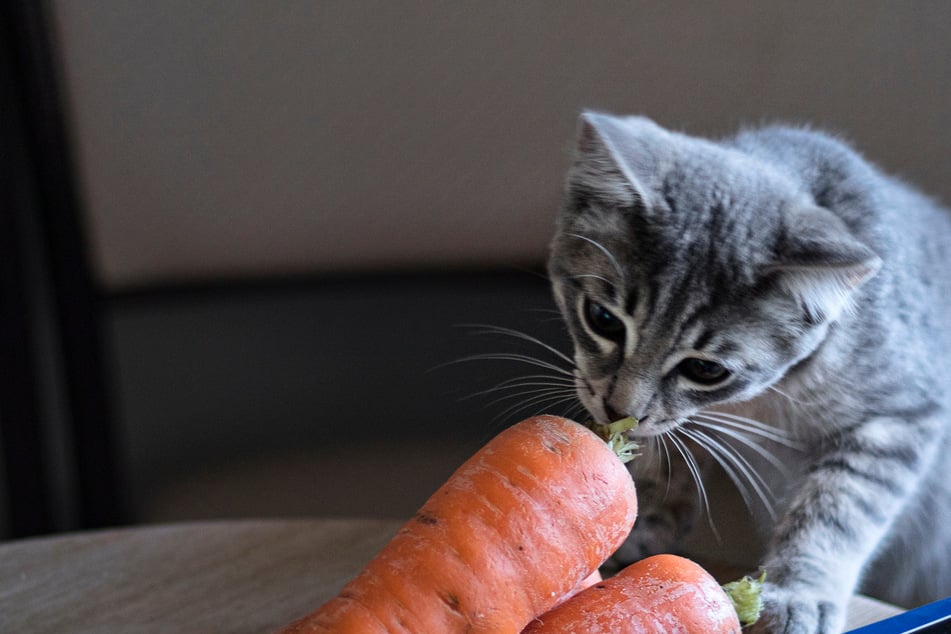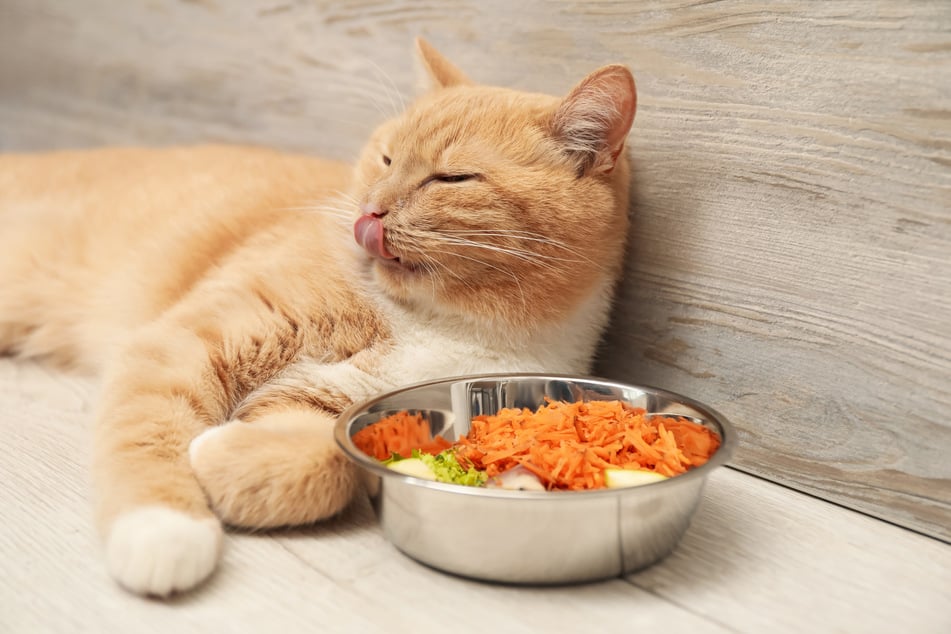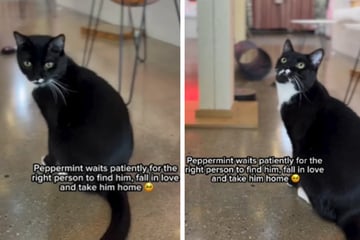Carrots and cat diarrhea: the unlikely cure for your kitty's upset tummy
Carrots are very healthy for humans, but is this also true for cats? Are cats allowed to eat carrots, and can the vegetables even help them cure diarrhea? TAG24 clarifies in this useful cat guide.
Are cats allowed to eat carrots?

When it comes to a cat's diet, the question always arises as to whether what is healthy and nutritious for humans can also be included in a cat's diet.
Particularly with vegetables such as carrots, you should find out whether your cat likes the food.
Cats are allowed to eat raw carrots in small pieces and in small quantities.
However, the green part at the end of the carrot is not suitable for consumption because it contains poisonous alkaloids.
In general, it is advisable to offer cats only cooked carrots, if at all.
The benefits of eating cooked carrots for cats are explained below.
Boiled carrots for cats
Cooked carrots are better tolerated by cats than raw carrots, but you should only offer your furry friend cooked vegetables when they are cooled, unseasoned, and finely chopped – and even then, only in small quantities.
Carrots are rich in fiber, zinc, potassium, magnesium, and beta-carotene, which strengthen the immune system and regulate digestion. However, carrots are only of limited use for cats because they cannot convert beta-carotene into vitamin A and therefore do not need it. Carrots also contain sugar, which cats should not necessarily consume too much of.
However, a small amount of carrots in the diet is not a problem for cats. It is sufficient to boil the vegetables briefly until soft to make them more easily digestible for cats.

Using carrots to treat diarrhea in cats
Carrots are a tried and true household remedy for diarrhea that can also work for cats and dogs. However, if you notice that your cat has diarrhea, you should first have it examined by a vet to find the root cause. At the same time, you can discuss with your vet whether it would help your cat to eat cooked carrots.
If you want to give your cat carrots in hopes of banishing their diarrhea, you can offer the veggies cooked and in small quantities up to five times a day.
Moroccan carrot soup to soothe diarrhea in cats
Again, if your cat has diarrhea, you should have it examined by a vet as well. Specialists can advise whether boiled carrots or a Moroccan carrot soup could help the animal in this situation. If they say that it's ok, then here's the recipe!
Moroccan carrot soup
Ingredients:
10 cups carrots
4 cups of water
Preparation:
Peel the carrots, cut them into small pieces, and bring to the boil in a pan with the water.
Leave to simmer on a low heat for about an hour and a half, adding more water if necessary, until the mixture reaches one liter again.
Purée everything and leave to cool.
In consultation with a vet, you can offer your cat this carrot soup three to four times a day in small portions at room temperature. When portioning out, you should take into account the size or weight of the cat so as to avoid giving them too much.
Important note: Moroccan carrot soup is actually prepared with salt, but too much salt can be dangerous for cats, so it is better to avoid this ingredient or ask your vet.

FAQ about carrots for cats
Conclusion
Boiled carrots can be a useful food supplement for cats or a remedy for diarrhea. However, if you want to feed your cat carrots, you should discuss this with your vet beforehand and only give your cat small cooked amounts at a time.
Cover photo: 123RF/leoschka
